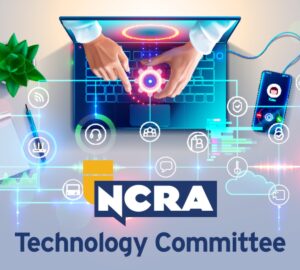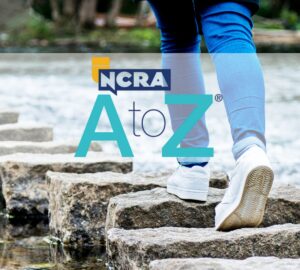NCRA’s TRAIN (Taking Realtime Awareness and Innovation Nationwide) Task Force raised the gate on Nov. 1 and officially rolled out the launch of a nationwide effort designed to encourage the development of TRAIN programs in every state.
As part of the effort, Task Force members have been reaching out to state leadership over the past several months to learn about the types of realtime training activities and groups that already exist, and if not, to identify the roadblocks hindering their development.
Other efforts by Task Force members have included updating resources available online, supplying every state leader with more than 20 realtime-related articles for use in membership newsletters, and upgrading the TRAIN website to make it more accessible and easier to navigate and printable.
“We want to see TRAIN reach every state; we want to see TRAIN reach every courthouse and every freelance firm,” said Lisa A. Knight, RMR, CRR, TRAIN Task Force chair and a freelance court reporter from Littleton, Colo. “TRAIN is working hand in hand on a state level, working with the state leadership as well as the state TRAINers — court reporters who have passed realtime certification tests — to help get TRAIN state committees formed, as well as working to implement state TRAIN groups nationwide.”
In August, Knight and NCRA Director Sue A. Terry, RPR, CRR, a court reporter from Springfield, Ohio, addressed the National Committee of State Associations delegation at NCRA’s Convention & Expo in San Francisco and explained the Task Force’s charges and what state leaders should expect in coming months. Knight and Terry also fielded questions from the delegates about the importance of learning to write realtime.
The TRAIN Task Force was established in 2011 by NCRA’s Board of Directors after completing Writing Our Future, an initiative which established a number of priorities for the court reporting profession, including instilling within court reporters the absolute importance of being realtime capable.
The goal of the TRAIN initiative is not to teach realtime but to show reporters that writing it isn’t scary or difficult and to encourage them to just do it. Other goals of the initiative include increasing the number of court reporters capable of writing realtime nationwide by offering information about necessary equipment, hands-on training on setup and troubleshooting, writing tips, and overall encouragement.
“Realtime is what most notably distinguishes court reporters from electronic or digital reporting,” said Knight. “The entire TRAIN effort is really just reporters helping reporters … that’s what it’s all about.”









